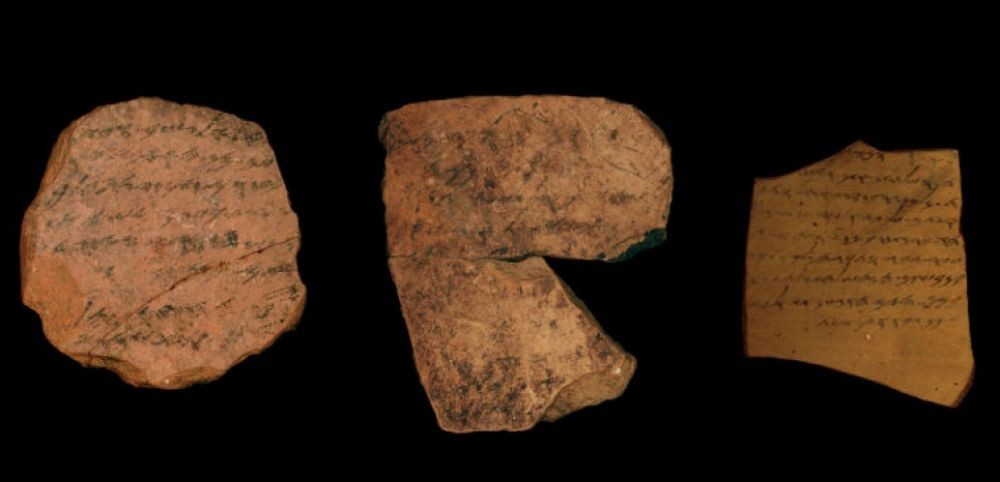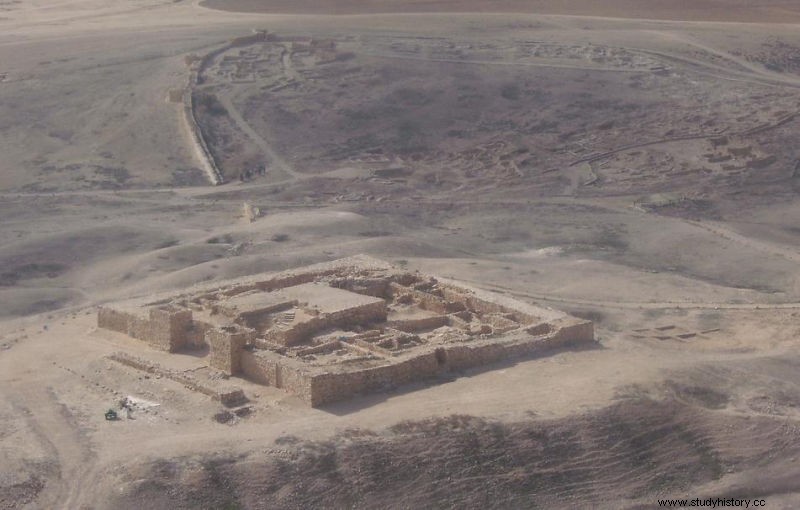 Inscriptions on ceramic shards (ostraca) dated to 600 BCE, from the Arad Fortress, in the Judean Desert (Israel).
Inscriptions on ceramic shards (ostraca) dated to 600 BCE, from the Arad Fortress, in the Judean Desert (Israel). Was writing really reserved for an elite of religious scribes in the ancient kingdom of Judah? The discovery of Hebrew inscriptions on 16 ceramic shards (ostraca ) of VII e century BC found in the ancient fortress of Arad, in the heart of the Judean Desert (Israel) suggests just the opposite:the level of literacy of the population - especially civil servants and soldiers - would have been already very high and writing much more widespread than previously thought! So much so that, according to archaeologist Israel Finkelstein and a team of researchers from Tel Aviv University, this new data could revolutionize our knowledge of the history of the constitution of the Bible! Scientists suggest that the writing and compilation of sacred texts could have begun much earlier than what specialists thought until then. This is at least the result of innovative work published in the American journal Reports of the National Academy of Sciences (PNAS).

Aerial view of the fortress of Arad in the Judean desert.
These ceramic shards, bearing ink inscriptions, were unearthed from the site of a former garrison in Arad. They included instructions related to the movement of troops, as well as the management of supplies. They also bore notations such as "the King of Judah or "the house of YHWH or the temple in Jerusalem where a deity named Yahweh was venerated. Graphical analyses, carried out using imaging tools and complex software, then showed that these documents would have been written by six different people, military leaders but also simple subordinates. Which proves that writing was not reserved for an elite.
With such a level of literacy in the kingdom of Judah, Israel Finkelstein believes that some Bible texts may have been written as early as the time of the First Temple in Jerusalem (also known as Solomon), well before its destruction by the armies. Assyrians of Nebuchadnezzar in 587 BC and the forced exile of part of the population to Babylon, especially the elites. The era of the writing of the first biblical texts has always been the subject of bitter discussions among specialists... to put it mildly. These analyzes therefore throw a stone in the garden of those who consider that most of them were written after the destruction of the Temple, during the exile of the Judeans in Babylon (587-338 BC) or even more. later, during the Persian period (538-333 BC), after Cyrus, conqueror of the Babylonians, had authorized the return of the Judeans from exile. Secular texts could thus shed new light on the question of the genesis of these sacred texts.
